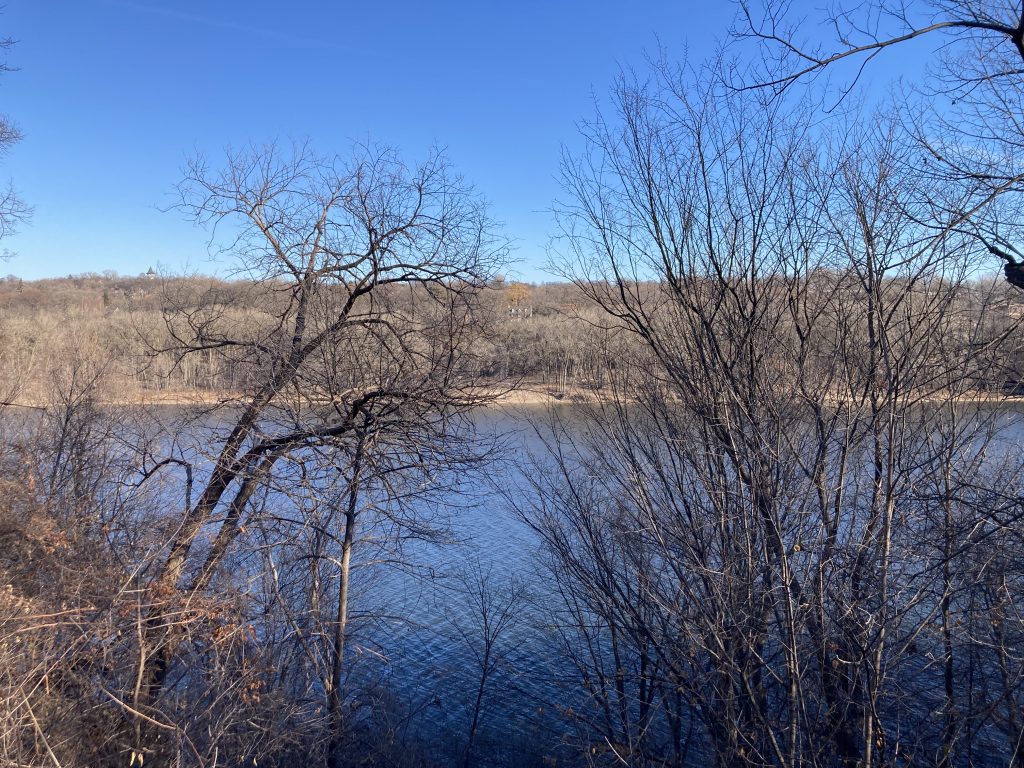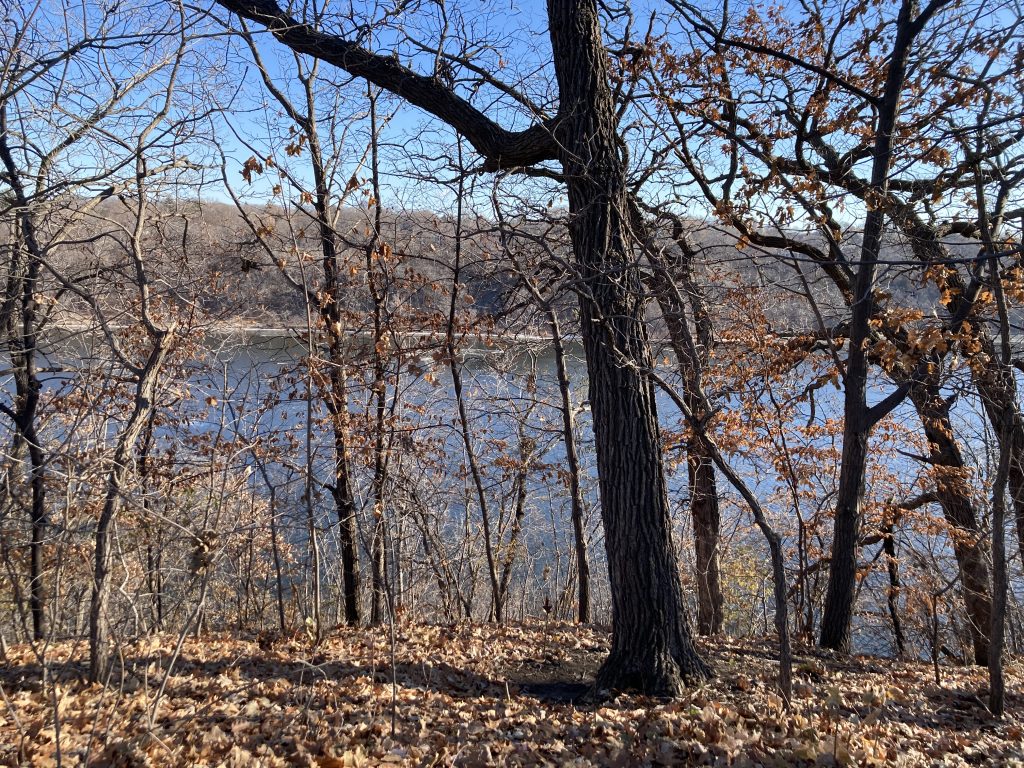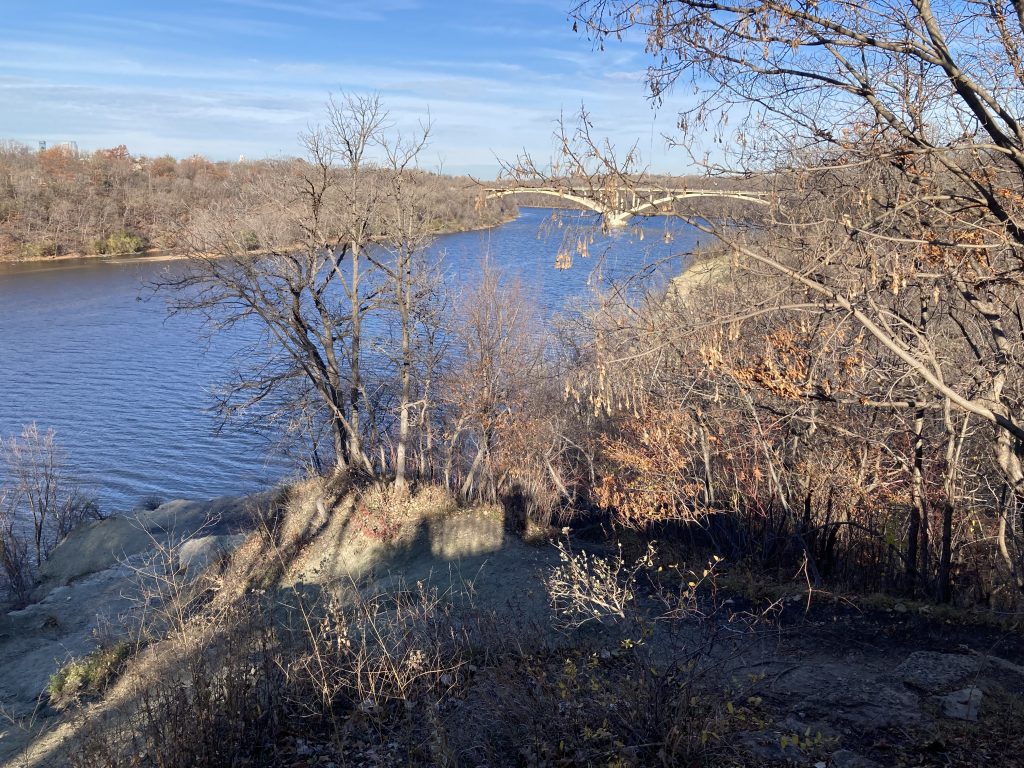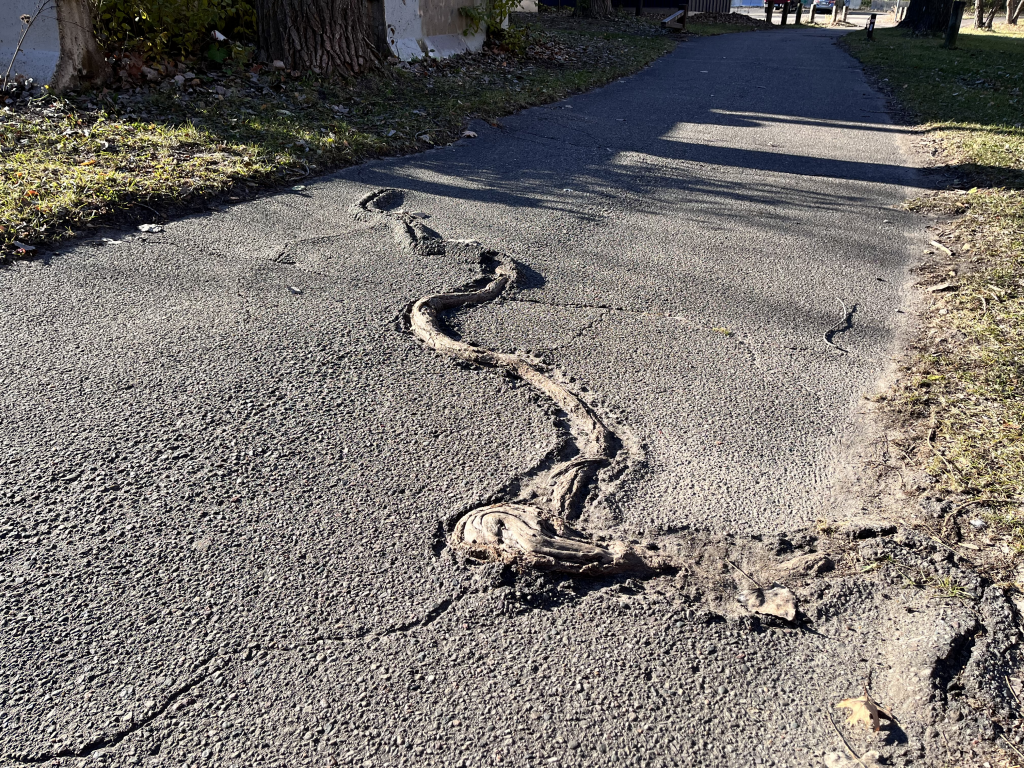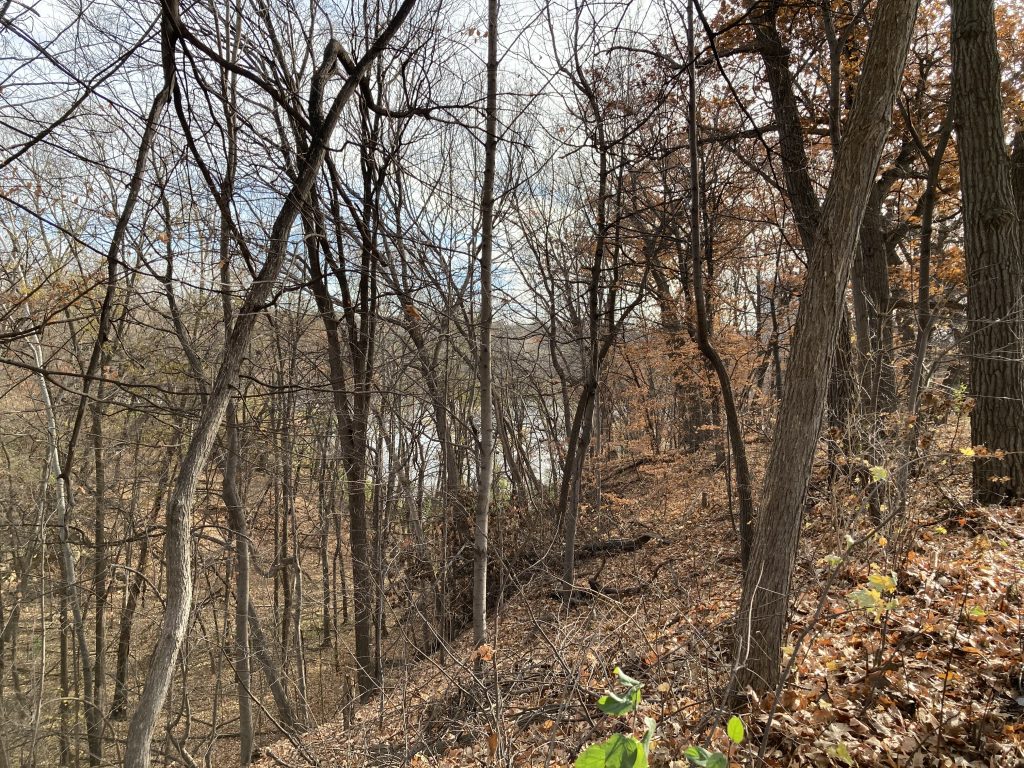5.25 miles
ford loop
34 degrees
Yes! Loved my run today — the light! the shadows! It started when I saw some strange patches of white on the sidewalk — what were they? Suddenly I realized: light, coming through the cracks in a fence and landing on the dark, shadowed sidewalk. Very cool.
10 Things: 4 Lights and 6 Shadows
- the light coming through the fence
- the shadowed sidewalk it landed on
- my shadow down in the ravine, running beside the water leading to shadow falls
- on the lake street bridge: the sun on the river — sparkling, stretching down river towards the ford bridge
- on the ford bridge: the sun illuminating a buoy below me
- the shadows of trees on the river
- the pointed shadows of the lamps — fuzzy
- my shadow running in front of me –sharp
- standing on the grass between edmund and the river road, looking across to the east bank, noticing a very white house shining in the sun
- the pattern of the railing shadows on the lake street bridge — criss-crossed, sprawled
I felt strong and happy and steady. For the first few miles, I chanted strawberry/raspberry/blueberry over and over. Occasionally I mixed in mystery or history or intellect. At one point, I chanted: a question/is asked and mystery/is solved
I noticed the empty benches, the darting squirrels. Smelled some burnt toast and weed (wow! must have been from a passing car). Heard some voices in the ravine. Didn’t see any Regulars or hear the bells at St. Thomas. Don’t remember birds or bikes. No roller skiers. No overheard conversations.
added over a day later: I forgot that I took some pictures when I stopped briefly on the ford bridge to put in my headphones:
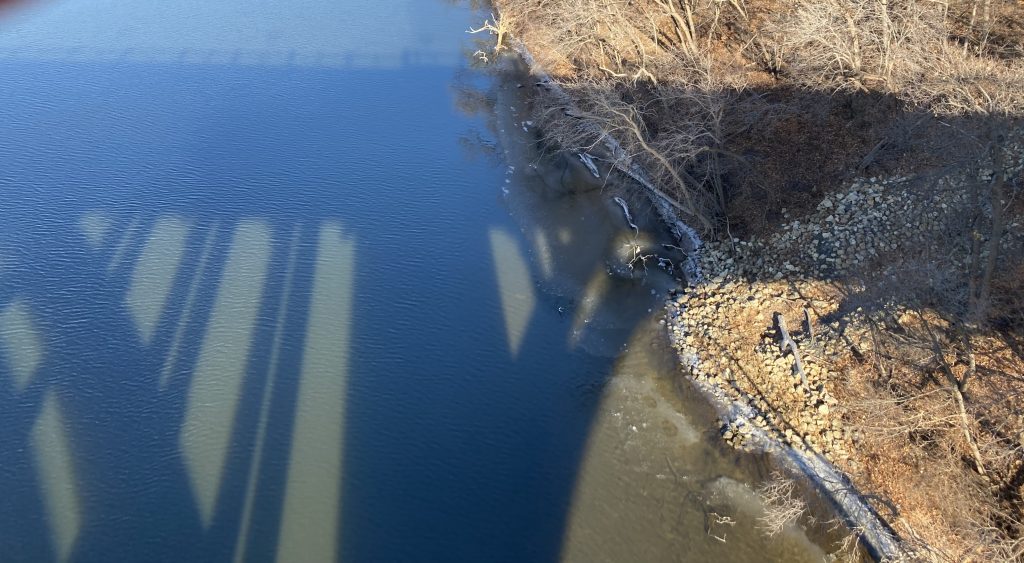
For the first four miles I listened to kids playing at the church playground, cars driving by, my feet striking the ground. Then I put in Merrily We Roll Along for the last mile.
Letter to Walt Whitman,
Who Painted Butterflies/ Kelli Agodon Russell
In 1942, Whitman’s handmade cardboard butterfly disappeared from the Library of Congress.
It was found in a New York attic in 1995.
Perhaps, you made them as a child—
cardboard butterflies lining your shelves,
hiding in the pockets of the wool pants
you wore only to church.
Maybe you would wake early
to cut cardboard into small waves
forming wings, and antennae appearing
like exclamation points.
Words fluttered from your pen,
cardboard wings dipped in red paint,
holding patterns of words,
the quiet swirl of wind.
Maybe there are thousands
of your butterflies still lingering in attics,
your secret world of paper insects
still hanging by threads.
I wanted to post this poem because I like how it’s set up, with the brief description, then the wondering/imagining about it. A fun exercise to try: when I find an interesting fact (here I’m thinking about the monarch butterflies that avoid a mountain in lake superior that’s been gone for more than a century), write a poem that speculates/imagines/creates a story around it.
